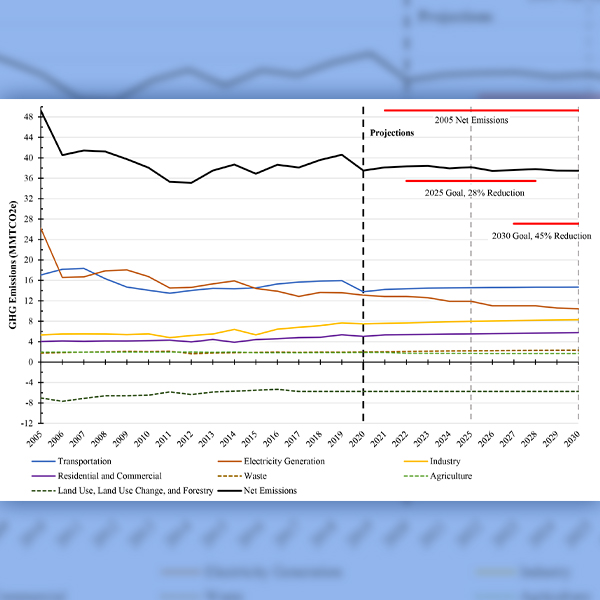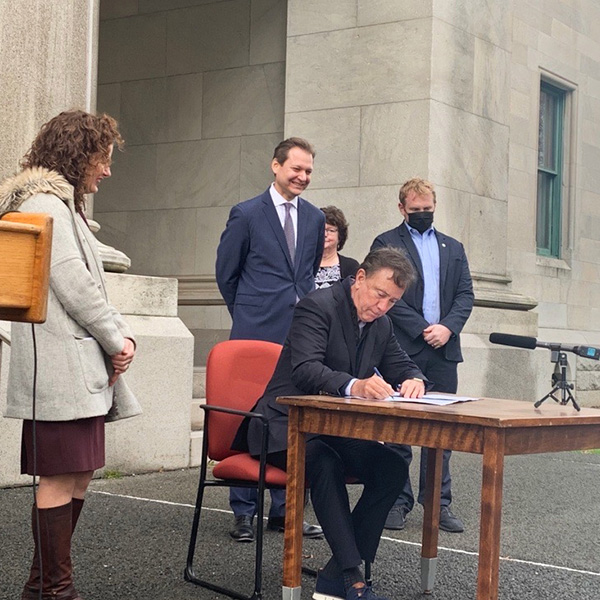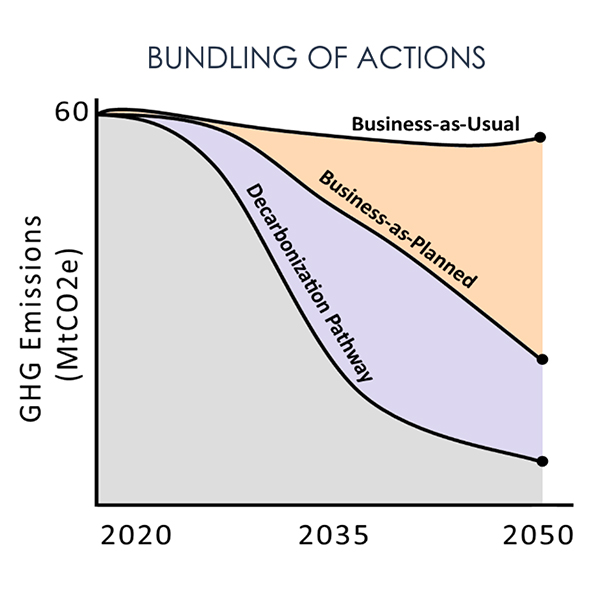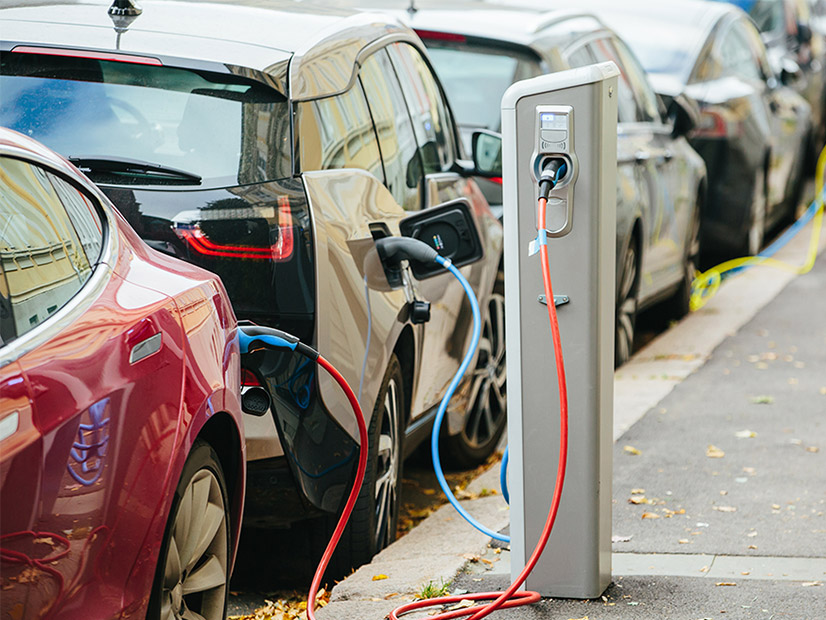Industrial Decarbonization
A Nevada report projects that the state’s GHG emissions in 2030 will be 24% less than in 2005 — far short of the 45% reduction that the state has set as a goal.
U.S. carbon emissions were up last year, but EPRI executives were optimistic about the country’s ability to cut its greenhouse gas emissions 50% by 2030.
Cap-and-trade is expected to yield Washington $500 million a year in revenue, according to the state agency charged with running the program.
An OurEnergyPolicy webinar focused on the importance of minerals to U.S. decarbonization and the vulnerability created by relying on imports.
Washington lawmakers will confront more than a dozen climate bills in their upcoming short session.
Connecticut Gov. Ned Lamont signed an executive order on climate with directives related to transportation, buildings, resilience, jobs and land use.
Oregon’s Environmental Quality Commission voted 3-1 to approve rules setting declining caps on GHGs from fuel suppliers, cutting their emissions 90% by 2050.
Oregon's Department of Energy kicked off an effort intended to identify and analyze the many efforts the state might undertake to meet its GHG reduction goals.
Washington Gov. Jay Inslee unveiled a $626 million climate change policy wish list for state lawmakers to tackle in the 2022 session.
New Jersey lawmakers backed legislation that would allow local governments to issue bonds to fund the purchase of electric vehicles.
Want more? Advanced Search










